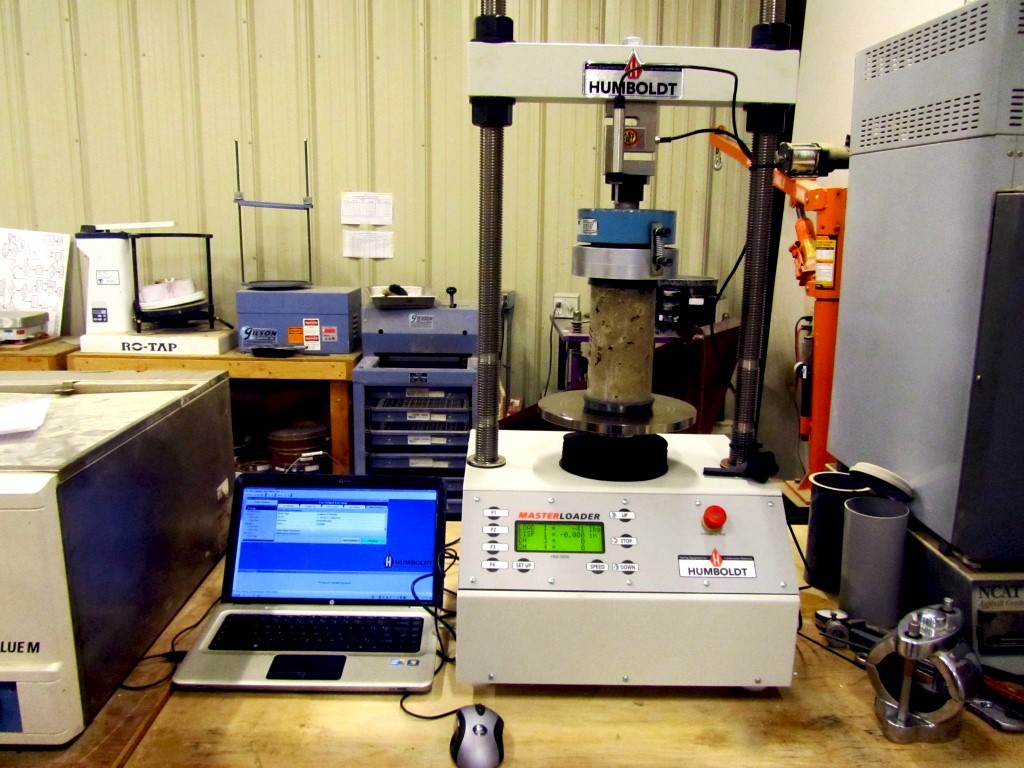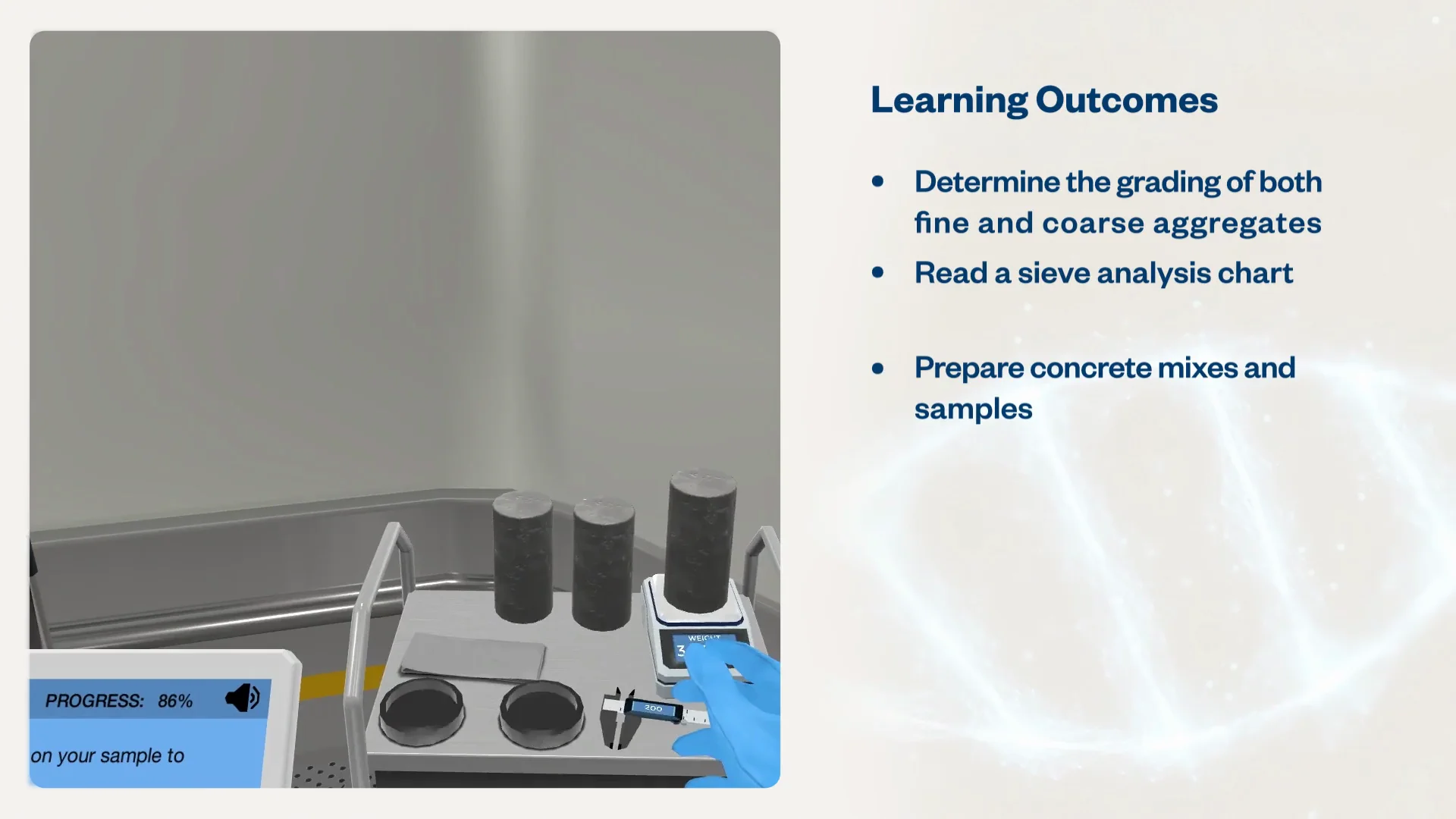Specialist Materials Test Lab for Industry-Leading Top Quality Requirements
Wiki Article
Precision Testing of Products for Toughness and Toughness
Precision testing of products for strength and sturdiness plays a crucial function in numerous industries, including manufacturing, building, and design. This procedure involves subjecting various products to rigorous evaluations to establish their ability to endure exterior pressures and maintain their stability in time.On the planet of products testing, precision is paramount. Researchers and designers rely upon reliable and exact data to make educated decisions regarding material choice, layout optimization, and item efficiency. By using innovative screening methods and modern tools, specialists can analyze the toughness and durability of a vast array of products, such as steels, polymers, porcelains, and composites.
This intro will certainly supply understandings into the importance of accuracy screening, the types of materials generally based on testing, the key parameters for toughness analysis, and the methods utilized for resilience evaluation. It will additionally highlight the applications and advantages of carrying out precision testing in numerous markets.
Significance of Accuracy Testing
Precision testing is a necessary action in examining the toughness and sturdiness of materials, giving accurate and trustworthy information for informed decision-making. When it involves manufacturing and construction markets, the quality and efficiency of products play a vital role in making certain the safety and long life of products and structures (materials test lab). For that reason, performing precision testing is of utmost relevance to figure out whether the materials satisfy the required criteria and specifications.By subjecting materials to strenuous testing manufacturers, treatments and designers can evaluate their mechanical homes, such as tensile strength, firmness, and influence resistance. This information permits them to guarantee that the materials can hold up against applied pressures and ecological conditions without failure or degradation with time. In addition, accuracy screening aids recognize any kind of possible issues or weak points in the materials, enabling manufacturers to make necessary improvements or alterations to boost efficiency and dependability.
Moreover, precision testing provides quantifiable and objective data that can be made use of to make and contrast various products notified decisions regarding their suitability for particular applications. When choosing materials for critical elements or structures where failing could have extreme repercussions., this information is specifically useful.
Kinds Of Materials Subjected to Evaluating
Various products undergo screening for stamina and longevity. This screening is critical to ensure that the products can withstand the needs of their desired applications and to establish their expected lifespan. The kinds of products subjected to testing are diverse and consist of steels, polymers, ceramics, composites, and building and construction materials.Metals, such as steel and light weight aluminum, are commonly checked for their tensile toughness, hardness, and resistance to rust. materials test lab. These examinations assist identify their suitability for use in architectural applications, equipment, and various commercial procedures

Ceramic materials, such as porcelain and ceramic tiles, are examined for their compressive stamina, heat resistance, and durability. These examinations make sure that ceramics can withstand heats and severe environments, making them ideal for applications in the building, electrical, and aerospace sectors.
Composites, which are products made from a combination of various components, are subjected to different tests to examine their mechanical buildings, such as rigidity, impact, and toughness pop over to this web-site resistance. Compound products are widely used in sectors such as aerospace, automobile, and sporting activities equipment manufacturing.
Construction materials, consisting of asphalt, concrete, and timber, undertake screening to establish their load-bearing capacity, resilience, and resistance to weathering. These examinations are crucial in making sure the safety and security and longevity of bridges, structures, and roads.
Key Specifications for Toughness Evaluation
One of the key criteria for strength examination is the tensile toughness, which measures a product's capability to stand up to pulling forces without damaging or flawing. One more vital criterion is the compressive strength, which assesses a product's resistance to being or squashing pressed with each other. By evaluating these essential specifications, scientists and designers can properly analyze the strength and toughness of products, allowing them to make enlightened choices in numerous industries such as aerospace, automotive, building, and manufacturing.

Strategies for Longevity Evaluation
Resilience analysis techniques are essential for examining the long-term efficiency and reliability of products. These techniques are vital in figuring out the capability of products to hold up against various ecological conditions and mechanical anxieties over extended amount of times. One generally made use of strategy is increased aging, which includes subjecting products to accelerated environmental problems such as heats, humidity, and UV radiation. This allows researchers to replicate the effects of long-lasting direct exposure in a shorter period, allowing them to assess material destruction and predict its performance with time.One more method is cyclic screening, which involves subjecting materials to repeated loading and dumping cycles. This aids assess the material's tiredness resistance and its capacity to endure repetitive tension without failure. By analyzing the stress-strain action of the product during cyclic testing, scientists can identify potential powerlessness and assess the product's longevity.
Furthermore, non-destructive screening strategies such as ultrasonic testing and infrared thermography can be utilized to evaluate the internal integrity and detect any type of flaws or damage in the product. These methods supply useful information concerning the material's longevity without creating any type of damage to it.
Applications and Benefits of Precision Screening
Precision screening plays a crucial duty in evaluating the strength and durability of products, enabling designers and scientists to acquire exact and trusted data for evaluating their efficiency. The applications of accuracy screening are wide-ranging and can be discovered throughout numerous industries, consisting of aerospace, vehicle, building, and manufacturing.Among the vital benefits of precision screening is its capacity to determine potential weak points or defects in materials. By subjecting products to extensive and controlled testing, any type of problems or vulnerabilities can be found before they lead to catastrophic failings. This permits manufacturers to make needed renovations or changes to improve the total high quality and sturdiness of their items.
Accuracy screening also assists in figuring out the optimum design and composition of materials. By evaluating various variations and arrangements, designers can identify the most ideal materials for certain applications. This leads to improved effectiveness, performance, and cost-effectiveness in various markets.
Moreover, precision testing provides beneficial data for the development Visit This Link and improvement of products and manufacturing procedures. materials test lab. It permits researchers to acquire a much deeper understanding of product habits under various problems, resulting in the development of new products with boosted toughness, strength, and efficiency qualities
Conclusion
In final thought, accuracy screening plays a vital duty in evaluating the strength and sturdiness of materials. By subjecting different kinds of products to extensive testing, vital parameters for strength evaluation can be recognized. Furthermore, methods for durability assessment provide valuable insights right into the efficiency and life expectancy of products. This knowledge makes it possible for industries to make enlightened decisions and ensures the development of lasting and trustworthy items.Accuracy screening is an important step in reviewing the stamina and resilience of materials, supplying precise and trustworthy information for informed decision-making.Numerous my response materials are subjected to screening for stamina and resilience. The kinds of materials subjected to screening are diverse and include metals, polymers, ceramics, compounds, and building products.
By assessing the stress-strain action of the product throughout cyclic screening, researchers can determine possible weak factors and evaluate the material's resilience.
In verdict, accuracy screening plays an important duty in reviewing the strength and resilience of materials.
Report this wiki page